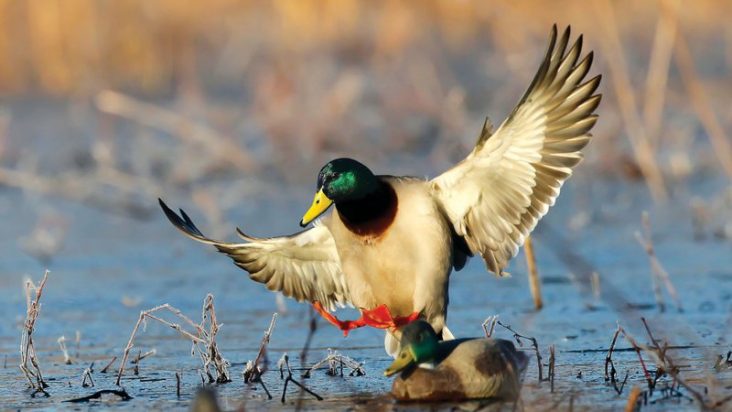Arkansas Waterfowler Hall of Fame adds four
by September 12, 2023 11:29 am 675 views

Courtesy Arkansas Game & Fish Commission.
The Museum of the Arkansas Grand Prairie announced Tuesday (Sept. 12) four inductees into this year’s Arkansas Waterfowler Hall of Fame. An induction ceremony will honor these individuals on May 23 at The Grand Prairie Center in Stuttgart.
The inductees include:
John Stephens was given his grandfather’s old duck calls at eight years old and he has been enamored with duck calling ever since. Stephens began calling lessons from the Butch Richenback when he was 11.
Stephens is the president and owner of RNT Calls, the business Richenback founded in 1976. He was the youngest to ever qualify for the World’s Championship Duck Calling Contest at age 13, and eventually went on to win the World’s Championship for the maximum of 3 times in 1995, 1998 and 2005.
In 2015, he became the Champion of Champions. During his competition years, he never finished out of the top five. His custom, handcrafted and private line of calls, J. Stephens Calls, are some of the most sought after calls in the industry, and it is important to him that the heritage and craft of duck calling continue with integrity for years to come.
Jody Pagan is the founder and owner of Ecosystems Protection Service that focuses on waterfowling. Growing up on an Arkansas farm, Pagan was immersed in the outdoors from day one. He worked with the U.S. Department of Agriculture Natural Resources Conservation Service as a biologist for nearly a decade, to revitalizing the hunting scene at Five Oaks as the chief biologist.
Pagan builds and rehabs hunting ecosystems throughout North and South America, including significant work in the Arkansas Grand Prairie. Some of his best strategies came from his work as chief biologist at Five Oaks, including his strategies of graduated flooding, shorter flooding timetables, broadening food sources, nurturing trees, and creating an abundance of resting areas.
Otis McCollum and his brother, Roy, are considered the fathers of Stuttgart’s commercial duck hunting industry. When McCollum was just starting, the farmers in the prairie hated the ducks that were swarming to eat all of their rice, but McCollum loved them.
He pioneered the strategy of building levees to hold water for green-tree reservoirs, 15 miles of which still stand today. And he built all of them with a hand-held sight level.
McCollum also standardized the sport. Before he began guiding, hunters would consistently overhunt, sneaking past the one overwhelmed game warden. But McCollum only hunted legally. He never shot after 10 in the morning and left one-third of an acre as a rest area – an uncommon practice at the time. At his peak, McCollum had built more than 7,000 acres of huntable land, most of which had previously been farmland.
Joe Mosby was a professional writer who covered Arkansas outdoors for decades. Mosby wrote thousands of newspaper articles, most of which were with the Arkansas Gazette as their outdoor editor. In his early years, he worked with rural newspapers, where he was immersed in hunting, fishing, and outdoor recreation. After the Gazette closed in 1991, Mosby went on to write for the Arkansas Game and Fish Commission until his death in 2015.
He also produced the Arkansas Outdoors newsletter and wrote countless other articles for magazines, brochures, books, and publications. Mosby even wrote his own obituary, saying, “I was something of a different kind of outdoor writer because I was a newsman assigned to the outdoor beat instead of an outdoorsman becoming a writer.” He is perhaps Arkansas’ best-known outdoor writer.
